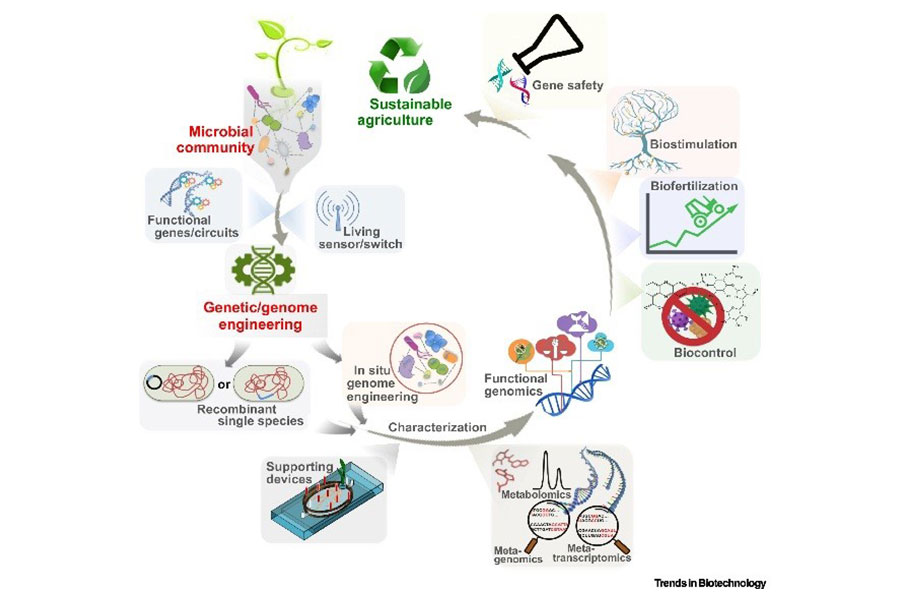Exploring The Complexities Of Genetic Engineering In Agriculture
When considering the future of food production, genetic engineering in agriculture stands at the forefront of innovation and controversy. This powerful technology promises to enhance crop resilience, improve yields, and even combat climate change. However, it also raises a plethora of ethical, environmental, and health-related questions that society must grapple with. Understanding these issues is crucial for anyone invested in the future of food systems and agricultural practices.
As we delve deeper into this topic, it’s essential to recognize that genetic engineering in agriculture is not just a scientific endeavor; it encompasses a wide range of implications that affect farmers, consumers, and the environment alike. The intersection of technology and agriculture has the potential to revolutionize farming practices, but it also brings forth concerns about biodiversity, food safety, and corporate control over the food supply. Addressing these concerns requires a nuanced understanding of the various issues at play.
In this article, we will explore the multifaceted landscape surrounding genetic engineering in agriculture, focusing on the critical questions that arise as we navigate this complex issue. From ethical considerations to environmental impacts, we aim to provide a comprehensive overview of when thinking about genetic engineering in agriculture, which type of issue emerges as most significant. Let’s begin our journey into this compelling topic.
What Are the Main Benefits of Genetic Engineering in Agriculture?
The advantages of genetic engineering in agriculture are numerous and can significantly impact food production. Here are some key benefits:
- Increased Crop Yields: Genetically engineered crops can be designed to produce higher yields, which is crucial for feeding a growing global population.
- Enhanced Resistance to Pests and Diseases: Crops can be modified to become more resilient against pests and diseases, reducing the need for chemical pesticides.
- Environmental Adaptation: Genetic engineering can help develop crops that thrive in challenging environmental conditions, such as drought or salinity.
- Improved Nutritional Content: Biofortification of crops can enhance their nutritional value, addressing malnutrition in vulnerable populations.
What Are the Ethical Concerns Surrounding Genetic Engineering?
As with any powerful technology, genetic engineering raises significant ethical questions. Some of the most pressing concerns include:
- Playing God: Many argue that altering the genetic makeup of organisms is an ethical violation, akin to playing God.
- Corporate Control: There is fear that large corporations may monopolize food production through patented genetically modified organisms (GMOs).
- Food Sovereignty: The introduction of genetically engineered crops may undermine local farming practices and traditional agricultural knowledge.
How Does Genetic Engineering Affect Biodiversity?
The impact of genetic engineering on biodiversity is a critical issue. Here are some aspects to consider:
- Reduction of Genetic Diversity: The widespread adoption of a few genetically modified crops can lead to a decrease in the genetic diversity of food sources.
- Threat to Native Species: Genetically engineered crops may crossbreed with wild relatives, potentially threatening native plant species.
- Monoculture Practices: Genetic engineering may encourage monoculture farming, which can make ecosystems more vulnerable to pests and diseases.
How Does Genetic Engineering Impact Food Safety?
Food safety is a paramount concern when discussing genetic engineering in agriculture. Key points of discussion include:
- Allergenicity: There is concern that genetically modified foods may introduce new allergens into the food supply.
- Long-term Effects: The long-term health effects of consuming genetically modified foods are still not fully understood.
- Regulatory Oversight: Questions arise regarding the adequacy of regulatory frameworks in place to ensure the safety of GMOs.
When Thinking About Genetic Engineering in Agriculture, Which Type of Regulation Is Needed?
The regulation of genetic engineering in agriculture is a contentious issue. Considerations include:
- Labeling Requirements: Should genetically modified foods be labeled to allow consumers to make informed choices?
- Research and Development Oversight: How can governments ensure that research into genetic engineering is conducted ethically and responsibly?
- International Standards: What role do international agreements play in regulating the use of genetic engineering in agriculture?
What Role Does Public Perception Play in Genetic Engineering?
Public perception significantly influences the adoption of genetic engineering in agriculture. Factors include:
- Misinformation: Misunderstandings about genetic engineering can lead to fear and opposition.
- Trust in Science: Trust in scientific institutions and regulators can impact public acceptance of GMOs.
- Media Influence: The portrayal of genetic engineering in media can shape public opinion and policy decisions.
Conclusion: Navigating the Future of Genetic Engineering in Agriculture
When thinking about genetic engineering in agriculture, which type of issue requires our immediate attention? The intersection of benefits and concerns presents a complex landscape that must be navigated with care. As technology continues to evolve, it is imperative that we engage in informed discussions about the implications of genetic engineering for our food systems, health, and the environment.
Only through open dialogue and collaboration can we hope to harness the potential of genetic engineering while addressing the ethical, environmental, and health-related issues it raises. The future of agriculture depends on our ability to strike a balance between innovation and responsibility, ensuring that we can sustainably feed the world for generations to come.



ncG1vNJzZmixn6PAtr7IZqWeq6RjsLC5jq2pnqaUnruogY6wn56mXam1qrrKoqWgZZGXvLbAjKCcp52knrBusc2goKedlae2r7OMoqVmmZentqTBy62sq51drLWqr8dmq7KolWK8p3nIrKqunV6dwa64